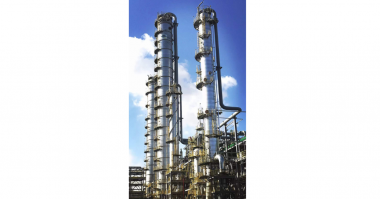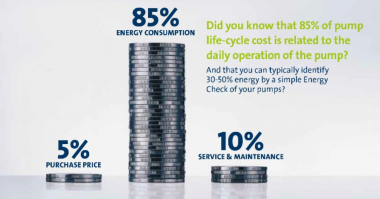A new report reveals that whilst the current environment is creating opportunities for innovation, almost half of oil and gas executives admit they have fallen short of their innovation goals. The number of respondents saying they have fallen short has almost doubled as the oil price has gone down, with only 26% saying they had fallen short in Spring 2014.
These findings form part of the Technology Radar 2015 report being launched today by Lloyd’s Register Energy, a leading integrity, compliance and specialist risk consulting services group. The report, Innovating in a New Environment, combines Lloyd’s Register Energy’s expert knowledge with third party insights, to provide data-driven findings on the role of innovation in the current and future upstream oil and gas industry. Through interviews with senior industry practitioners and a global survey of oil and gas professionals, it provides a compelling case for increased technological innovation.
“The oil and gas industry is undergoing a period of significant uncertainty”, said John Wishart, Group Energy Director, Lloyd’s Register. “The oil price slowdown is clearly impacting investment in innovation initiatives. However, our report finds that contrary to perceived wisdom, innovation has a crucial role to play in the current environment, where it creates operational efficiencies and is cost-effective.”
“To innovate properly and achieve business goals companies must address a number of common challenges, including collaborating more openly, using data more effectively and changing traditional mind-sets”, continued Wishart. “Encouragingly, our findings show that overall the industry understands the need for innovation and has begun reaching out to other sectors to gain technological insight.”
In the opening part of Technology Radar 2015, the report considers the role for innovation in the changing innovation landscape and concludes that the cyclical downturn should be a driver of innovation, not a barrier. Crucially for industry professionals, the report outlines three scenarios for how different oil prices may affect innovation, examining the types of innovation that will be prioritised in each scenario. The majority of oil and gas executives believe the oil price will sit between $50-$70 in the next year, with the highest percentage (27%), believing it will hover around $70. This will in many cases hinder investment in innovation.
The report also looks at how executives are placing increasing emphasis on collaboration, both internally and outside of the industry, as they adapt technology from other sectors. Two-thirds of respondents say they are under pressure to collaborate with other organisations within the sector. When they do collaborate, upstream companies focus on the early stages of a project, and often around safety. The report reveals an overarching cultural shift is still required to fully integrate genuine collaboration in innovation.
Finally, in part three the role for data collection and analytics in driving innovation is assessed, finding that more advanced data collection and analytics are a must have in the current low oil price environment. Lack of data and systems integration across different parts of the business are huge barriers to successful data collection and analytics, with silos the biggest cause of the issue.
Despite understandable pessimism due to the current landscape, Technology Radar 2015 shows that the downturn in the oil price is strengthening the need for innovation, not weakening it. The unique insights provided by this report show industry professionals how they can address the challenges to better innovation and enhance operational performance.




Comments